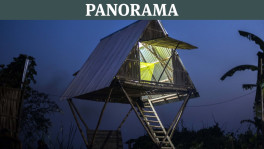Strengthen backward linkages for a sustainable RMG sector
We should now focus on localisation rather than globalisation

Bangladesh – the second largest ready-made garments (RMG) manufacturer in the world – is experiencing tremendous uncertainty following the shock caused by Covid-19.
The virus has paralysed the world and placed the global economy in a recession – which may become a depression if it lasts long.
We are proud of our ready-made garments industry as it contributes around 84 percent of our national export earnings and employs around 41 lakh people.
During 2018-2019 our total exports totalled $4,054 crore – where the apparel sector, alone, contributed $3,413 crore.
To execute export orders of $34.13 billion, Bangladesh had to import $12.17 billion's-worth of raw materials – mostly from China.
Due to the Covid-19 pandemic, our garments sector has been drastically affected because of a shortage of raw-materials – in addition to other reasons.
Over time, our apparel sector has grown large but we could not, or did not, address the necessity of patronising backward linkage industries – resulting in slow growth and even a shut-down of many industrial units in this sector.
Sustainability and survival demand low, or no, dependence on others.
Dependence weakens the knots and the very capacity of bargaining and negotiation.
When we are very dependent on the import of raw materials from China – and a little on such imports from other countries – we fail to make big profits from the business as buyers assess us using different parameters and we become vulnerable. Dependent entities cannot hold leading positions.
In spite of having every ability and possibility to develop a strong backward linkages footing of our own, we have not done so.
The business community did not make strong efforts and the government did not take it very seriously.
I think vigorous research was needed to check the viability and put the findings into action, plus, the current contributions of this sector should have been properly acknowledged, but this did not happen. This ensured the backward linkages remained backward.
Moreover, the contribution of backward linkages to the growth of the RMG industry continues to be overlooked in the eyes of sector leaders.
According to the Bangladesh Textile Mills Association, Bangladesh is capable of supplying 85 percent of the RMG sector's yarn and fabric from backward linkages – along with 40 percent of woven fabric required by the knitwear sector which has helped take the value addition to 75 percent.
Value addition to the woven fabric sector is now around 35 to 40 percent meaning that Bangladesh is unable to fulfill 60% of its demand for woven fabrics.
A recent Bangladesh Bank report showed that the import price of raw materials in the July-December period of FY 19 stood at $6.28 billion – which is 36.77 percent of the total export earnings from the RMG sector of $17.08 billion in the period.
The cost of raw materials shared 36.77 percent of the total value of RMG exports – which means local value addition is estimated at 63.23 percent. This portrays a clear picture of how the backward linkages sector is contributing to Bangladesh's RMG sector.
We need to address the strengths and weaknesses of our backward linkages, and concentrate on it, so that we can establish our own strong backward linkage footing – resulting in a low dependency on the import of raw materials.
We cannot avoid such imports but we can reduce them. Sometimes we cannot use the benefit of our backward linkages as the buyers require us to use the raw materials from their nominated suppliers. We have very little negotiation power there as well.
However the Covid-19 pandemic has taught us that we need to focus on our own strength in every sphere otherwise we will lag behind. I believe that we should now focus on localisation rather than globalisation and we should start working on our own strengths for a stronger RMG sector.
Some points are to be addressed – including the government's stimulus package – after the shutdown is over and we get to return to our normal lives.
The government will need to address the issues of: button, zipper, dyeing, hanger, hangtag, polybag, collar stand, size tag, tissue paper, backboard, and neck board manufacturing factories – rather than of the textile and spinning industries – as they play a pivotal role in the development of RMG sector. Without their help, no exports can be executed.
Thousands of people are engaged in these small, but very important, business units. The pandemic has wreaked havoc on them and, as such, they are not getting payment from their clients. The garments have got a stimulus package of Tk 5,000 crore, which will help them to get back, but what will be the fate of these business units that are dependent on the RMG Sector?
A stimulus package is a must for this sector otherwise its failure will eventually affect the RMG sector and make it vulnerable.
The procurement of raw materials for the garments industry, and all other industries in Bangladesh, is basically dependent on China. We know that one third of the world's production is in China and around 35 percent of our imports come from there.
Dependency on any product from a single country is sometimes very bad for any economy. By this time, it has been proven by the price of onion reaching Tk 300 per kilogramme – when India decided not to export to Bangladesh. Our billion dollar export orders were cancelled when China failed to ship the raw materials from their ports.
From now on, our business people should start searching for other sources – like India, Malaysia, Korea, Vietnam, etc. – for raw materials.
Meanwhile, the government, and business leaders, should focus on strengthening our own footings.
Bangladesh Bank should help release the payments of the small business units of the backward linkages otherwise they will not receive their payments on time – resulting in huge losses to their businesses and even shutdowns of their respective factories.
The government should prioritise this because a huge number of small business units hire thousands of people.
The business leaders of the Bangladesh Garments Manufacturers & Exporters Association, Bangladesh Knitwear Manufacturers & Exporters Association, Bangladesh Garments Accessories & Packaging Manufacturers & Exporters Association, Bangladesh Textile Mills Association, etc., and government representatives, should sit together to take concerted and coordinated efforts towards flourishing backward linkages.
They should formulate policy guidelines as to how the RMG sector, and all related business units, can be made sustainable and foreign currency can be saved.
They should look into this carefully and vigilantly so that the stimulus package of Tk 5,000 crore can be used honestly. They should ensure that the money goes to those who need it for their survival. The money of the state should not be wasted, in any way, as the time ahead is very tough.
The diversification of exports is a need of the time. A country's exports cannot be dependent only on one sector.
The economy is growing, so we should search for other scopes and diversify our exports sector to benefit from other sectors as well.
If we can focus on backward linkages of the RMG sector, at least our foreign exchange earnings will rise. So, for the due and sustainable survival of the RMG sector, backward linkages should be prioritised.
The author, an economic analyst, is Founder and CEO of Finpower Leadership International


 Keep updated, follow The Business Standard's Google news channel
Keep updated, follow The Business Standard's Google news channel
















